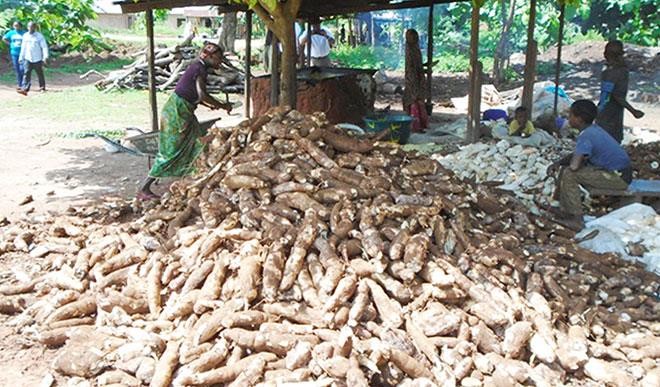- This topic is empty.
- AuthorPosts
- April 10, 2025 at 9:04 am #625696

Cassava is more than just a staple crop—it is a lifeline for millions of households across the globe, particularly in rural communities. As demand for resilient, affordable, and nutritious food sources increases, focusing on cassava processing and value addition for enhanced food security and income generation has never been more vital.
With the right techniques and innovations, cassava can be transformed from a simple root into a wide range of high-value products that boost livelihoods and improve access to quality food.
1. Primary Processing For Improved Storage And Stability
Fresh cassava has a short shelf life, often becoming unfit for consumption within a few days of harvest. Primary processing methods such as peeling, slicing, drying, and fermenting play a crucial role in prolonging its usability.
Turning cassava into products like chips, flour, and pastes allows for safer storage and easier transportation. These basic steps reduce post-harvest losses significantly while ensuring cassava remains available during off-seasons, contributing to food security and minimizing waste.
2. Development Of Nutritious And Versatile Food Products
Cassava can be transformed into an array of food items such as gari, fufu, cassava flour, bread, biscuits, and even noodles. These value-added products cater to various dietary preferences and market needs, including the growing demand for gluten-free foods.
By processing cassava into versatile and nutritious items, communities can improve their food diversity and nutrition while creating products that appeal to both local and international consumers. This not only improves health outcomes but also supports long-term food access.
3. Industrial-Scale Applications For Economic Expansion
Beyond food, cassava has industrial value in the production of ethanol, biodegradable plastics, paper adhesives, and animal feed. These non-food applications open doors to large-scale markets and increased revenue streams for farmers and processors.
Governments and investors are beginning to recognize the untapped industrial potential of cassava, encouraging the establishment of processing plants and research hubs. This industrial integration creates new jobs and strengthens entire value chains, transforming cassava into a driver of national economic growth.
4. Strengthening Rural Livelihoods Through Local Enterprises
Value addition at the local level empowers smallholder farmers, particularly women and youth, to start small-scale businesses. With basic training and access to affordable processing equipment, individuals can produce, package, and sell a wide range of cassava-based products.
These grassroots enterprises contribute to local food supply, reduce dependence on imports, and generate steady income streams. As more rural communities engage in cassava processing, their economic resilience and food sovereignty are significantly improved.
5. Ensuring Product Quality And Meeting Market Standards
As cassava products gain commercial value, maintaining high quality becomes essential. Adhering to food safety standards, proper fermentation, hygienic packaging, and accurate labeling ensures the products are safe, appealing, and competitive in the market.
Quality assurance builds trust among consumers and opens access to larger, premium markets. Training and regulation are key components in helping processors meet these standards and scale their operations sustainably and profitably.
Focusing on cassava processing and value addition for enhanced food security and income generation offers a sustainable pathway to transform agriculture, reduce hunger, and promote inclusive economic growth.
From improving shelf life to creating new food and industrial products, the opportunities are immense. By investing in processing techniques, supporting local entrepreneurs, and ensuring quality standards, cassava can shift from a subsistence crop to a cornerstone of regional development and resilience.
Read Also: Cassava Stem Selection and Preparatio
- AuthorPosts
- You must be logged in to reply to this topic.

